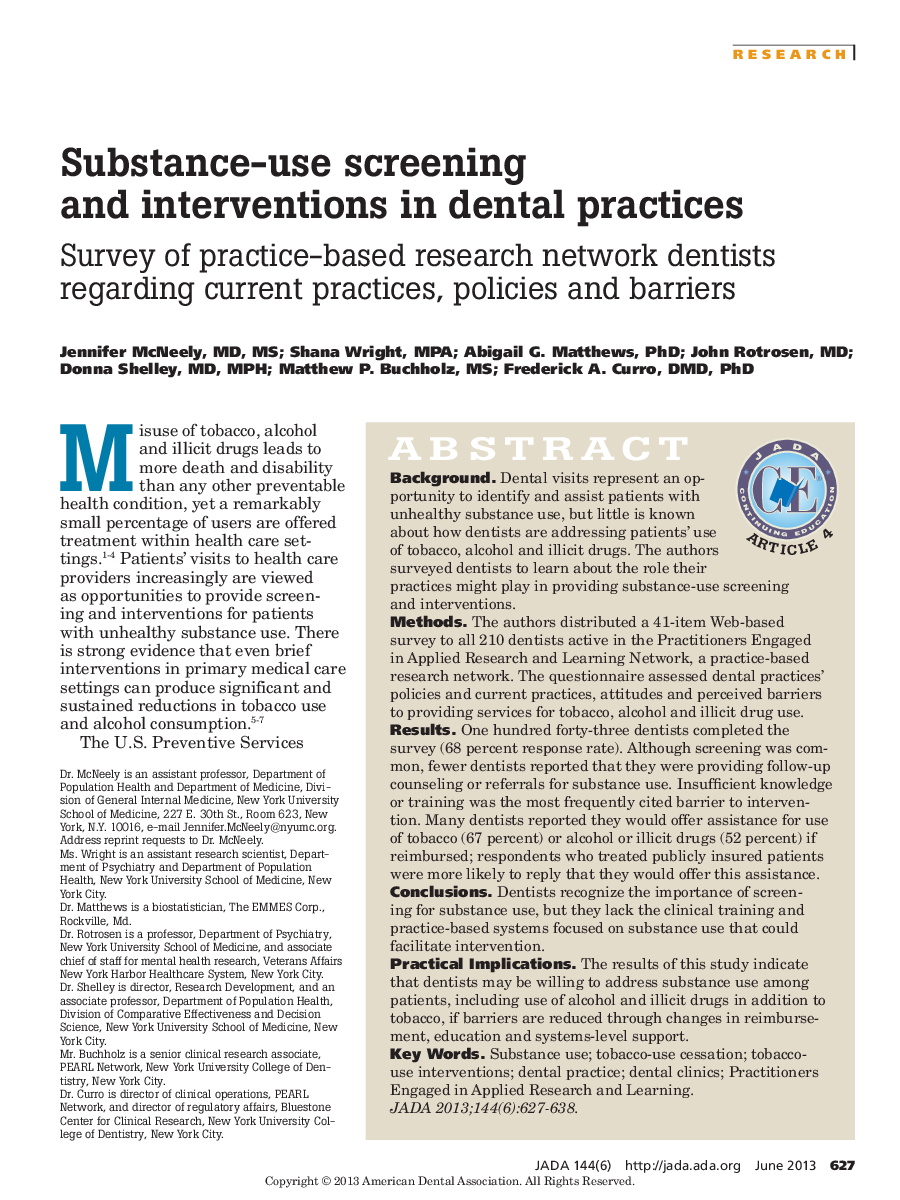| Article ID | Journal | Published Year | Pages | File Type |
|---|---|---|---|---|
| 3137275 | The Journal of the American Dental Association | 2013 | 12 Pages |
ABSTRACTBackgroundDental visits represent an opportunity to identify and assist patients with unhealthy substance use, but little is known about how dentists are addressing patients’ use of tobacco, alcohol and illicit drugs. The authors surveyed dentists to learn about the role their practices might play in providing substance-use screening and interventions.MethodsThe authors distributed a 41-item Web-based survey to all 210 dentists active in the Practitioners Engaged in Applied Research and Learning Network, a practice-based research network. The questionnaire assessed dental practices’ policies and current practices, attitudes and perceived barriers to providing services for tobacco, alcohol and illicit drug use.ResultsOne hundred forty-three dentists completed the survey (68 percent response rate). Although screening was common, fewer dentists reported that they were providing follow-up counseling or referrals for substance use. Insufficient knowledge or training was the most frequently cited barrier to intervention. Many dentists reported they would offer assistance for use of tobacco (67 percent) or alcohol or illicit drugs (52 percent) if reimbursed; respondents who treated publicly insured patients were more likely to reply that they would offer this assistance.ConclusionsDentists recognize the importance of screening for substance use, but they lack the clinical training and practice-based systems focused on substance use that could facilitate intervention.Practical ImplicationsThe results of this study indicate that dentists may be willing to address substance use among patients, including use of alcohol and illicit drugs in addition to tobacco, if barriers are reduced through changes in reimbursement, education and systems-level support.
